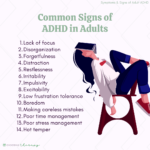In the shadows of human interaction, there lurks a chilling reality that many of us are unaware of, yet it influences our lives daily. It’s called dark psychology, and it’s more common than you might think. This article peels back the layers of this sinister aspect of human behavior to reveal how it might be silently manipulating your life. Are you a victim? Read on to find out.
What is Dark Psychology?
Dark psychology encompasses the study and practice of psychological tactics used to manipulate, coerce, or deceive others. While psychology is often associated with healing and understanding, dark psychology exploits these principles for personal gain, often harming the target in the process. It is the tool of con artists, manipulative lovers, toxic co-workers, and others who seek to exploit the vulnerable.
Recognizing the Signs of Dark Psychological Manipulation
1. Gaslighting: Undermining Reality
One of the most harmful aspects of dark psychology is gaslighting, where the manipulator convinces you to doubt your own memory, perception, or sanity. Examples include subtle shifts like, “You’re just too sensitive,” or blatantly denying that an event ever occurred.
2. Fear, Obligation, and Guilt (FOG)
FOG is a tactic used to instill confusion and anxiety. If someone constantly makes you feel scared to disagree or say no, or if you feel disproportionately responsible for their happiness, you might be experiencing FOG.
3. Love Bombing and Devaluation
Initially, a manipulator might shower you with excessive affection, attention, and gifts only to withdraw them suddenly and replace them with scorn or criticism. This hot-and-cold behavior keeps the victim longing for the positive attention they once received.
4. Triangulation
Adding a third person into the mix is a way manipulators create tension, jealousy, and competition. It could involve compliments to others in your presence or sharing secrets with others that are withheld from you, creating a sense of insecurity and doubt.
How Dark Psychology Creeps into Everyday Life
In the Workplace
Ever felt undermined by a colleague in ways so subtle you couldn’t point it out? That might be dark psychology at play. From stealing credit to spreading rumors, the workplace can be a hotbed for manipulative tactics.
In Relationships
This is particularly painful because it’s personal. A partner may use emotional manipulation tactics such as silent treatments or passive-aggressive behaviors to maintain control and power in the relationship.
On Social Media
Social platforms are ripe for psychological manipulation. From curated realities that induce envy and insecurity to cyberbullying, the digital world can be a playground for those looking to exploit others psychologically.
Real-Life Examples: Learn from Others’ Experiences
Consider the story of Emily, who spent years in a relationship with someone who used her deepest insecurities against her to keep her in line. Or John, whose co-worker spread rumors to sabotage his reputation and career. These stories are not just tales; they are real-life examples of dark psychology in action.
Protecting Yourself from Dark Psychology
1. Educate Yourself
Knowledge is power. Learn about psychological manipulation tactics so you can recognize them immediately.
2. Set Boundaries
Establish clear boundaries with people. When someone repeatedly crosses these boundaries despite your clear communication, it might be time to reevaluate their presence in your life.
3. Trust Your Gut
Often, victims of manipulation feel something is wrong before they can rationalize it. Trust those feelings. Consult trusted friends or a therapist if something feels consistently off.
4. Seek Professional Help
A mental health professional can offer support and strategies to handle and recover from psychological manipulation.
Why You Need to Take Dark Psychology Seriously
Ignoring the potential for dark psychological tactics in your life can lead to prolonged suffering and manipulation. Recognizing and combating these tactics is essential for maintaining your mental health and well-being.
Conclusion: Empower Yourself
While it’s uncomfortable to consider, recognizing the role of dark psychology in everyday interactions is crucial. By educating yourself and learning to recognize these manipulative behaviors, you can protect yourself from becoming a victim. Remember, it’s not just about identifying the dark—it’s about appreciating the light and ensuring that your interactions are healthy, supportive, and genuine.
So, have you been a victim of dark psychology? It’s time to take a closer look at your interactions and arm yourself with the knowledge and tools to protect your psychological well-being. Don’t let manipulation dim your shine—take control and live your life free of unwanted manipulation!
Related posts:
 Sexual Health: Things to Know
Sexual Health: Things to Know
 The Truth Behind Narcissists and Pain
The Truth Behind Narcissists and Pain
 Unlocking the Surprising Effects of Sex on Mental Health
Unlocking the Surprising Effects of Sex on Mental Health
 The Creepy Crawlies: Can You Feel Pinworms Moving?
The Creepy Crawlies: Can You Feel Pinworms Moving?
 Discovering the Hidden Signs of Dehydration: What to Look for
Discovering the Hidden Signs of Dehydration: What to Look for
 Recognizing the Hidden Signs: ADHD Symptoms in Adult Women
Recognizing the Hidden Signs: ADHD Symptoms in Adult Women
 Enhancing First Aid Techniques with the Chain of Survival
Enhancing First Aid Techniques with the Chain of Survival
 Say Goodbye to Constipation: Learn How to Get Your Bowels Moving
Say Goodbye to Constipation: Learn How to Get Your Bowels Moving
